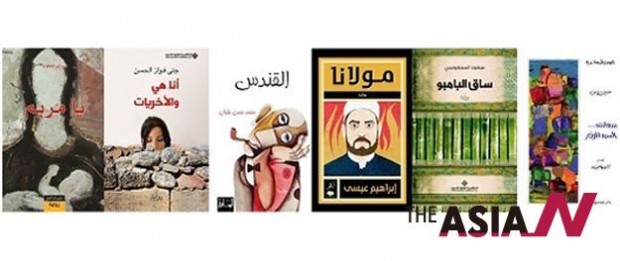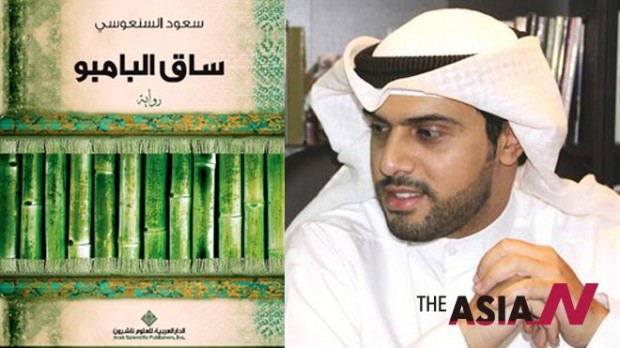IPAF Surprise: Younger and less popular novelists stand out
The shortlist for the International Prize for Arabic fiction (IPAF) has been announced in Tunisia. It came as a surprise as many famous novelists who were included in the long list didn’t make it to the shortlist.
The unexpected shortlist included these six novels:
“Ave Maria” by the Iraqi novelist and translator Sinan Antoon, “I, She and Other Women” by the Lebanese novelist Jana Elhassan, “The Beaver” by the Saudi novelist Mohammad Hasan Alwan, “Our Master” by the Egyptian journalist Ibrahim Issa, “The Bamboo Stick” by the Kuwaiti writer Saud Alsnousi, and “His Excellency … The Minister” by the Tunisian novelist Hussien Alwad.
For the Lebanese novelist Jana Elhassan, Kuwaiti writer Saud Alsnousi, and Saudi novelist Mohammed Hasan Alwan, this is their second work and they all aren’t 40 yet. For the Tunisian novelist Hussien Alwad, this is his second novel too, which was written during Bin Ali’s regime, that’s why he only published it in 2012.
As for Ibrahim Issa, he’s more popular for being a journalist and political figure more than being a novelist. Sinan Antoon is probably the most popular one on the shortlist for being a novelist, poet, and translator. His novel “Ave Maria” is his third novel, he also expressed his surprise at the turnout of the shortlist.
As for the nominated works, in “Ave Maria”, Sinan Antoon goes deeper into the sufferings of the Iraqi people especially minorities. And the novel “I, She and Other Women” by the Lebanese novelist Jana Elhassan, tells the story of “Sahar” who is like any Arabic woman tries to discover herself and get out of the prison set by her family and society. It’s the story of a typical Arabic woman who feels oppressed before and after marriage and lives a life of complete eeriness with only her imagination to make up for it.
As for “The Beaver” by the Saudi novelist Mohammed Hasan Alwan, who was the only Saudi novelist on the longlist, it’s a novel filled with philosophy and details of life at Saudi Arabia. He used the Beaver as a symbol for the family members and their behavior. “Our Master” by The Egyptian journalist Ibrahim Issa on the other hand is a modern political novel. It tells the story of one of a Sheikh who appears on TV having a show for his own, as a sample for these type of people. He shows their many faces and the insides of their world, he shows how they misuse religion for personal gains, and their political effect.
As for “The Bamboo Stick” by the Kuwaiti wrier Saud Alsnousi, it discusses the identity crisis and the belonging problem in our society, which became over-filled with racism. It’s about a journey to find roots that links someone to a certain society, religion, or identity and resembles it to Bamboo sticks. It follows the story of a well-known Kuwaiti man marrying a Pilipino, and their son’s struggle trying to blend with two different cultures, different religions, different languages, and different lives. It’s worthy to mention that he’s the first Kuwaiti to be nominated to this prize ever.
Finally, the novel “His Excellency … The Minister” by the Tunisian novelist Hussien Alwad, which is a pure political novel. It’s also enough to know that it was written with Bin Ali’s oppressing regime in mind. He’s also the only Tunisian novelist in the longlist for this year.
It seems that the award this year took interest into more controversial works over deeply written ones. It appears that way since they eliminated known names like: Elias Khoury, Hoda Barakat, Waciny Laredj, Ibrahim Nasrallah, and 2012 IPAF winner Rabee Jaber, whom were on the longlist.
The judges were announced: Egyptian writer and Academic Galal Amin, Lebanese critic Sobhi Alboustani, Head of Arab Cartoonists’ Association and chief editor of Syrian daily newspaper “AlDomari” Ali Farzat, Polish Academic and specialist in Arabic Literature Barbara Michalak-Pikulska, and specialist in Classic and Arabic literature, Zahia Salhi.
It’s also important to note that the Poker prize faced a wide range of criticism amongst readers for eliminating well-known names and choosing Galal Amin as president of the jury.
The results came out on 3rd April announcing the Kuwaiti novelist Saud Alsnousi, thus becoming the first Kuwaiti novelist to be awarded with this prize.









































































